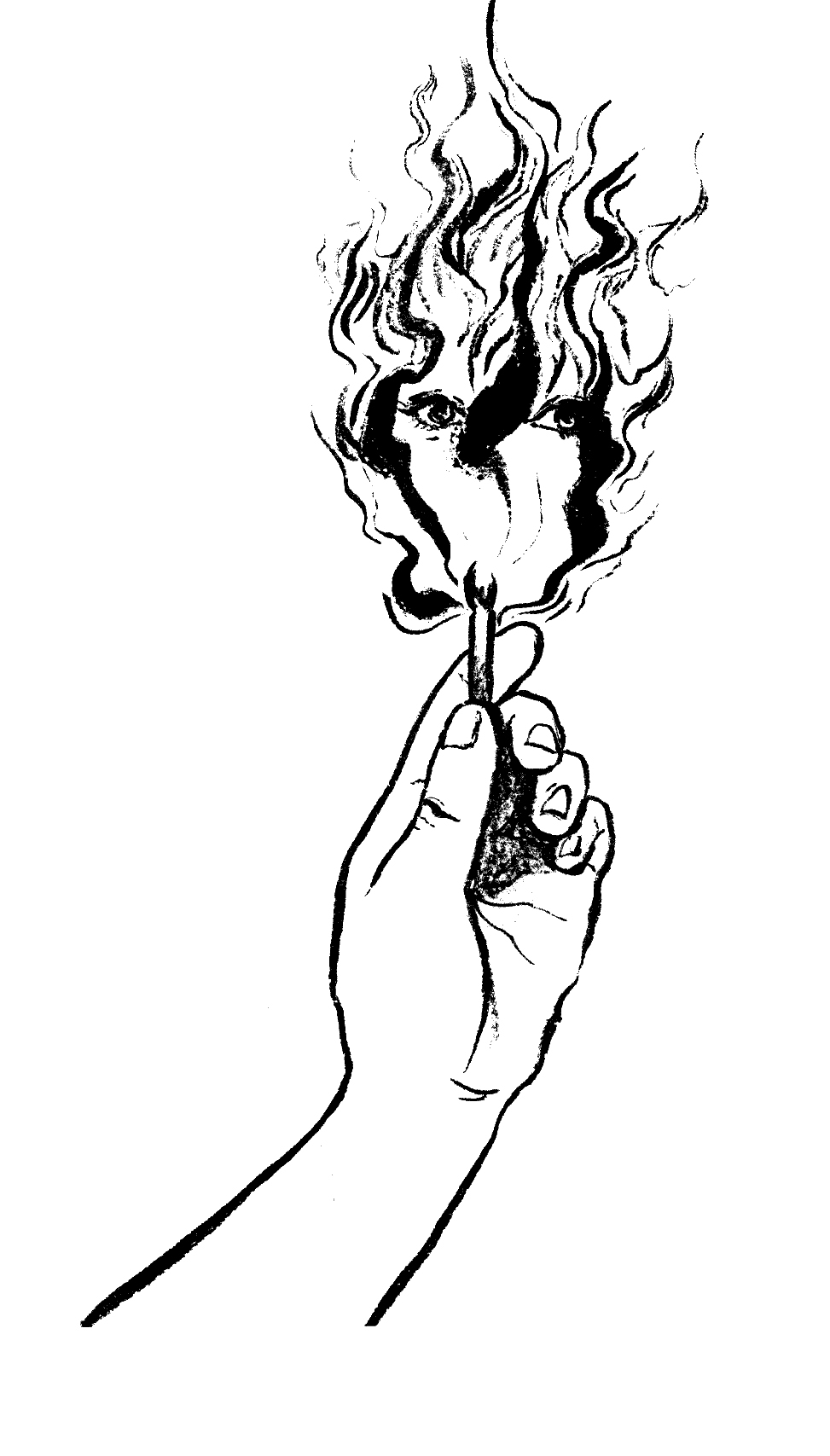Don’t forget the name Sahar Khodayari
September 27, 2019
 Kyra Tan
Kyra TanIf you haven’t heard the story of Iran’s “Blue Girl,” it’s not your fault. It has been a blip in a news cycle dominated by Brexit, Antonio Brown and the Global Climate Strike that many within the Bowdoin community participated in. But if you are one of the few who has heard the news about this 29-year-old activist’s death, you’re probably wondering why it has gotten so little attention.
In March, Sahar Khodayari attempted to sneak into Azadi Stadium in Tehran. She disguised herself as a man, cloaked behind the blue and white colors of her beloved Esteghlal Football Club. She was confronted and arrested after security guards discovered she was a woman. Earlier this month, when she appeared in court, she was told she could face six months to two years in prison for “appearing in public without a hijab.” Upon learning that, she doused herself with gasoline outside the courthouse and set herself on fire. She died days later in the hospital.
The events that led to her horrific death began to unfold well before she was born. The declaration of an Islamic Republic in Iran in April of 1979 would shape the course of her life—first and foremost as a woman, but also as a soccer fan. Amid the general social segregation and repression, women were barred from entering football stadiums. The Republic, and its leader Ayatollah Khoemeini, would dig their nails into every aspect of civic life, including the nation’s most decorated soccer team.
In 1970, Taj Tehran Football Club became the first club in Iran to establish a women’s football team. No aspects of the previous monarchist regime were tolerated in Iran after the Revolution, and Taj—which means “crown” in Farsi—was put under the control of the government and renamed Esteghlal—“independence” in English.
While the myth of passive compliance has dominated the Western perception of Iranian women, Khodayari’s death has highlighted and reinvigorated a movement for social reform that has manifested itself in soccer from the outset of the regime. Throughout the 40 years that women have been banned from stadiums, girls and women have continued to play and watch football, at times in the face of strong stigma.
Open Stadiums, a movement of Iranian women seeking to end the ban, has gained prominence and recognition over the last decade. Posters calling for the ban to be lifted were visible in St. Petersburg during the 2018 World Cup in Russia and outside of domestic stadiums during league play as well.
Khodayari’s acts of resistance have been celebrated by Esteghlal and swaths of Iranian soccer fans throughout the country. Despite pressure from the government to not acknowledge her death, “Blue Girl”—as she has been dubbed by social and international media—was printed on the Esteghlal jerseys in their first match following her death.
FIFA, soccer’s international governing body, released a statement saying, “We are aware of the tragedy and deeply regret it. FIFA conveys our condolences to the family and friends of [Khodayari] and reiterate our calls on the Iranian authorities to ensure the freedom and safety of any women engaged in this legitimate fight to end the stadium ban for women in Iran.”
In the past, Iran has responded to global pressures by temporarily lifting the ban for particular matches, particularly when it knows the world is watching. On October 10, women will be admitted to watch the World Cup qualification match between Iran and Cambodia, according to Iran’s Football Federation. While FIFA has mandated that women have to be allowed into football stadiums for all matches, holding the government to that will take much more than a declaration.
This isn’t the kind of sports news that people like to remember or talk about. It isn’t a matter of equal pay, goal celebrations or rule changes. This is far outside the bounds we know as sports activism. But just like we have etched names like Megan Rapinoe, Alex Morgan and Abby Wambach in the lexicon of champions for gender equality, we shouldn’t forget the name Sahar Khodayari or the names of the countless other Muslim soccer fans who choose to stand up in some of the most difficult of circumstances.

Comments
Before submitting a comment, please review our comment policy. Some key points from the policy: